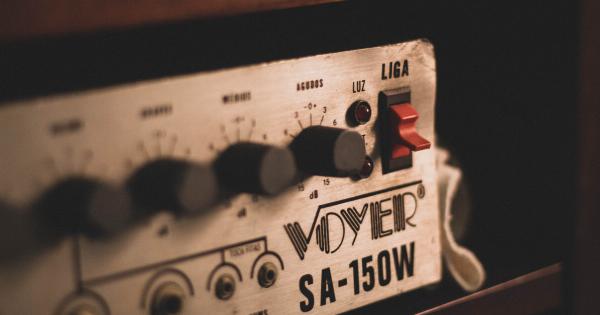Dementia is a progressive degeneration of the brain that affects cognitive and behavioral function. As the disease progresses, individuals may experience memory loss, difficulty with language, impaired judgment, and changes in mood and behavior.
While there is no cure for dementia, there are many non-medical interventions that can help improve quality of life and overall well-being for people living with the condition. Here are some effective non-medical interventions for dementia:.
1. Cognitive Stimulation Therapy
Cognitive Stimulation Therapy (CST) is a non-pharmacological treatment for people with dementia that involves structured activities designed to stimulate cognitive function.
The goal of CST is to enhance cognitive and social functioning and improve quality of life. CST can be provided in a group setting or one-on-one, and typically involves activities such as word games, memory exercises, and creative projects.
2. Reminiscence Therapy
Reminiscence therapy involves encouraging people with dementia to talk about past experiences and share memories.
This can be done through group activities or one-on-one interactions, and may involve looking at old photographs or listening to music from the person’s youth. Reminiscence therapy can help improve mood, reduce social isolation, and increase overall well-being.
3. Music Therapy
Music therapy involves using music to stimulate cognitive, emotional, and social functioning in people with dementia. Music can help reduce anxiety, depression, and agitation, as well as improve communication and social interaction.
Music therapy may involve listening to music, singing, or playing instruments.
4. Art Therapy
Art therapy involves using art as a means of self-expression and communication. For people with dementia, art therapy can provide a way to communicate thoughts and feelings that may not be easily conveyed through language.
Art therapy may involve drawing, painting, or other creative processes.
5. Pet Therapy
Pet therapy involves introducing animals into the lives of people with dementia. Pets can provide companionship, reduce stress, and improve overall well-being. Interactions with animals can also stimulate cognitive and social functioning.
6. Exercise
Exercise is important for maintaining physical and cognitive function, and can help reduce the risk of developing dementia.
Exercise programs designed specifically for people with dementia can help improve balance, coordination, and strength, as well as provide opportunities for social interaction.
7. Socialization
Socialization is important for maintaining cognitive and social functioning and reducing social isolation among people with dementia.
Socialization opportunities may include group activities such as book clubs, card games, or gardening, as well as outings to museums, parks, and other community events.
8. Massage Therapy
Massage therapy involves physical manipulation of the muscles and tissues to reduce stress and promote relaxation. For people with dementia, massage therapy may help reduce anxiety, agitation, and behavioral disturbances.
Massage therapy may also improve sleep quality and overall well-being.
9. Aromatherapy
Aromatherapy involves using essential oils to promote relaxation and reduce stress. For people with dementia, specific essential oils may be used to promote calmness and relaxation, reduce agitation, and improve sleep quality.
10. Reality Orientation
Reality orientation involves providing people with dementia with information about their current environment, including the time, date, and location. This can help improve cognitive functioning and reduce feelings of confusion or disorientation.
Reality orientation may involve using calendars, clocks, and other aids to help people with dementia maintain a sense of time and place.


























